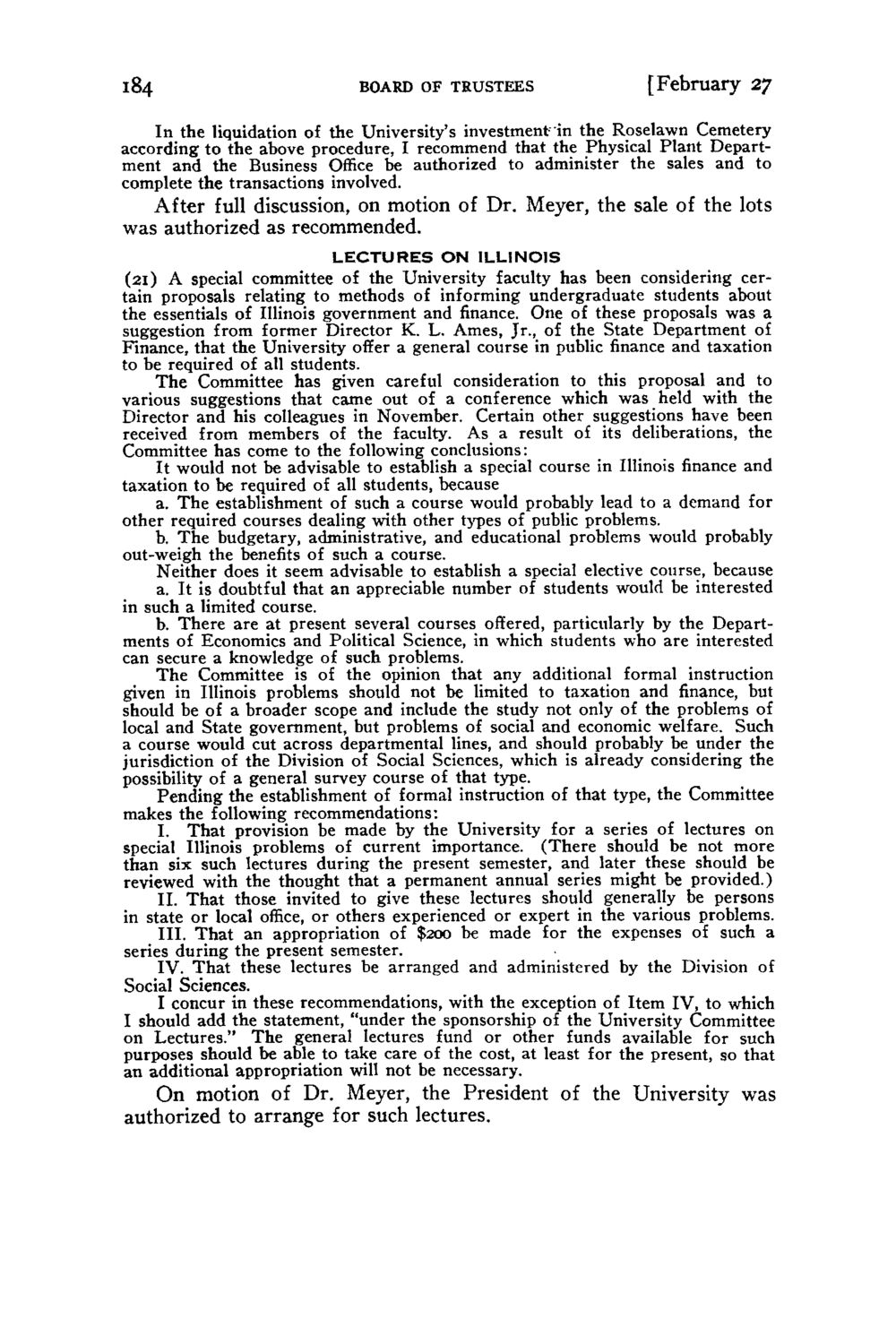| |
| |
Caption: Board of Trustees Minutes - 1938
This is a reduced-resolution page image for fast online browsing.

EXTRACTED TEXT FROM PAGE:
184 BOARD OF TRUSTEES [February 27 In the liquidation of the University's investment'in the Roselawn Cemetery according to the above procedure, I recommend that the Physical Plant Department and the Business Office be authorized to administer the sales and to complete the transactions involved. After full discussion, on motion of Dr. Meyer, the sale of the lots was authorized as recommended. LECTURES ON ILLINOIS (21) A special committee of the University faculty has been considering certain proposals relating to methods of informing undergraduate students about the essentials of Illinois government and finance. One of these proposals was a suggestion from former Director K. L. Ames, Jr., of the State Department of Finance, that the University offer a general course in public finance and taxation to be required of all students. The Committee has given careful consideration to this proposal and to various suggestions that came out of a conference which was held with the Director and his colleagues in November. Certain other suggestions have been received from members of the faculty. As a result of its deliberations, the Committee has come to the following conclusions: It would not be advisable to establish a special course in Illinois finance and taxation to be required of all students, because a. The establishment of such a course would probably lead to a demand for other required courses dealing with other types of public problems. b. The budgetary, administrative, and educational problems would probably out-weigh the benefits of such a course. Neither does it seem advisable to establish a special elective course, because a. It is doubtful that an appreciable number of students would be interested in such a limited course. b. There are at present several courses offered, particularly by the Departments of Economics and Political Science, in which students who are interested can secure a knowledge of such problems. The Committee is of the opinion that any additional formal instruction given in Illinois problems should not be limited to taxation and finance, but should be of a broader scope and include the study not only of the problems of local and State government, but problems of social and economic welfare. Such a course would cut across departmental lines, and should probably be under the jurisdiction of the Division of Social Sciences, which is already considering the possibility of a general survey course of that type. Pending the establishment of formal instruction of that type, the Committee makes the following recommendations: I. That provision be made by the University for a series of lectures on special Illinois problems of current importance. (There should be not more than six such lectures during the present semester, and later these should be reviewed with the thought that a permanent annual series might be provided.) II. That those invited to give these lectures should generally be persons in state or local office, or others experienced or expert in the various problems. III. That an appropriation of $200 be made for the expenses of such a series during the present semester. IV. That these lectures be arranged and administered by the Division of Social Sciences. I concur in these recommendations, with the exception of Item IV, to which I should add the statement, "under the sponsorship of the University Committee on Lectures." The general lectures fund or other funds available for such purposes should be able to take care of the cost, at least for the present, so that an additional appropriation will not be necessary. On motion of Dr. Meyer, the President of the University was authorized to arrange for such lectures.
| |